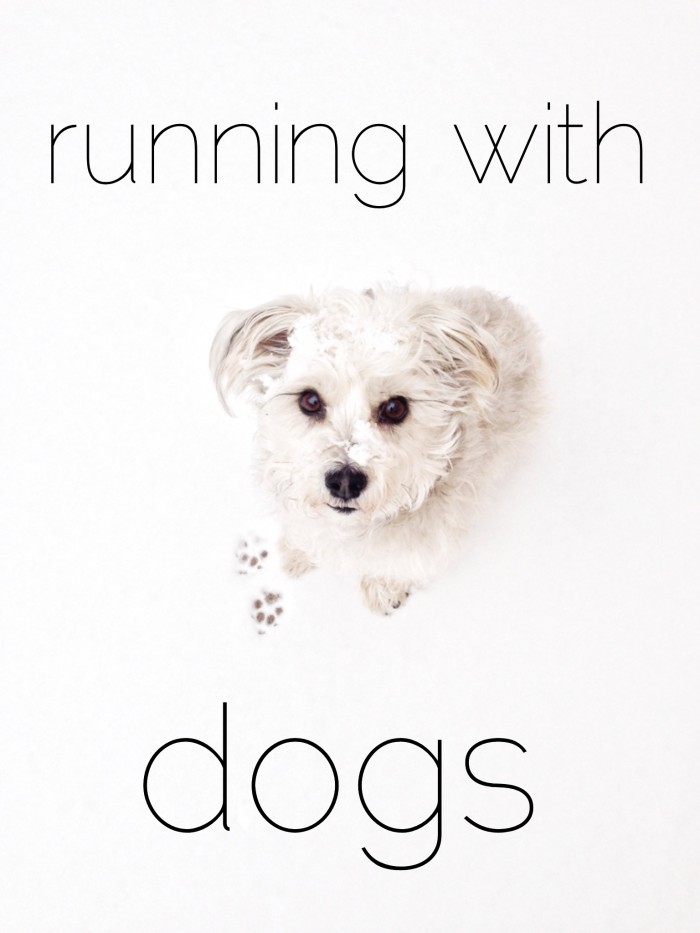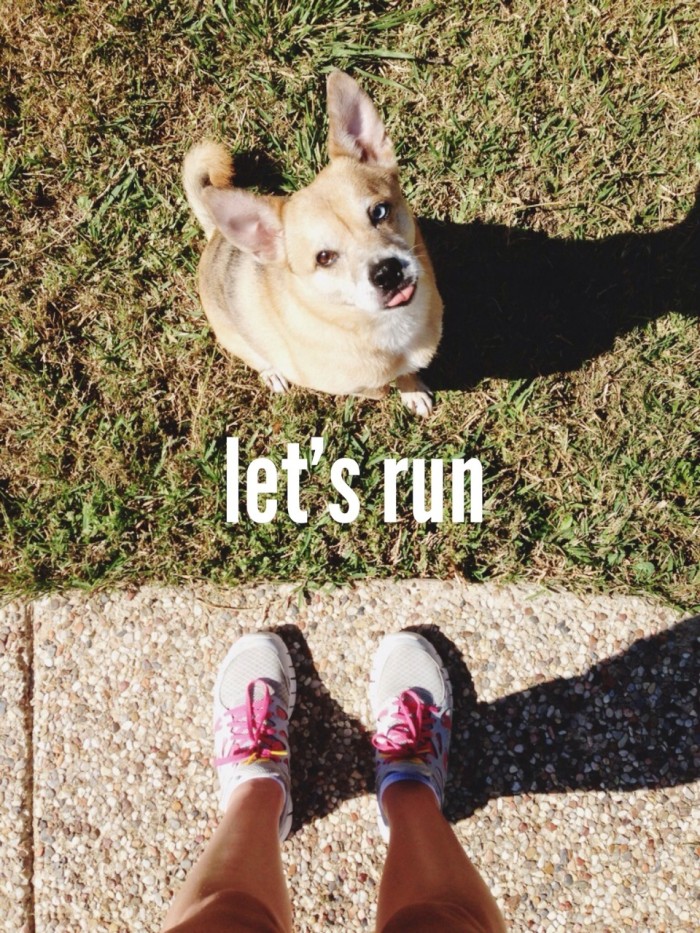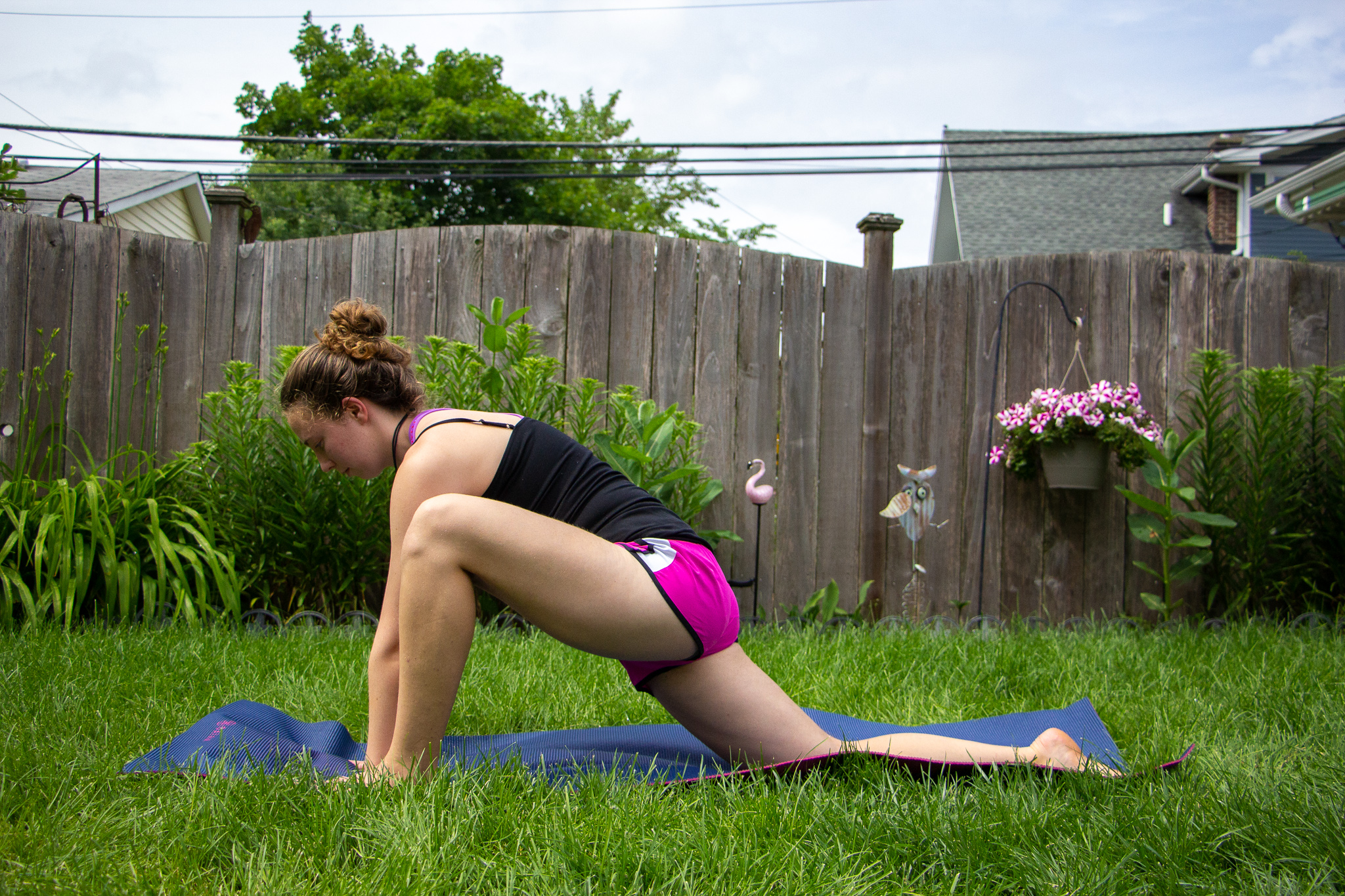This week marks the half-way point in our marathon training. Eight weeks ago, we started by running only a few miles a day, and this week, we will be running 18 miles yet again like it’s nothing. Take a moment to appreciate all of your hard work, dedication and determination. You are half-way to completing your goal and by now, the hardest part (the mental “I don’t think I could ever do that” part) is over!
We also should take a moment to appreciate those who (for some of us) have been with us every step of the way and who are also in their eighth week of training: our dogs.

Photo Credit: Claire Harris
I love to run with my pups not only for security early in the morning, but because it is a wonderful time to bond and share something together. The exercise and change of scenery is great for them and their excitement is extra motivation on those days when I am not totally feeling like going for a run. However, just like us, dogs can easily become injured during long runs and their safety is our responsibility. Here are 10 ways to keep your pups safe on a run, no matter the distance:
1. Know Your Pup: No two dogs are the same, and just like us, some dogs are more athletically inclined than others. Some dogs may be able to run 10 miles with you (and some even complete a marathon) while for others, 2 or 3 miles may be their maximum distance. Know your dog and his athletic level and be sure not to push him too hard. Remember, just because you can run it, doesn’t necessarily mean your dog can.
2. Terrain Matters: Dogs can easily succumb to smaller injuries of the ankle, foot and knee just like humans, so be aware of what type of terrain you run on with your dog. Too much street running can result in impact injuries in the paws or hips and trail running poses the threat of rolled ankles. Switch up your runs to avoid injury and be aware of any discomfort that your dog may show before, during and after runs on various terrains.
3. Watch Their Little Paws: While I wish nothing more than for all dogs to run around in tiny, adorable tennis shoes, the reality is that they don’t, and the pads on their feet are very sensitive. Dogs can easily burn their paws on hot concrete or get frostbite during winter weather. Trails with a lot or debris or roads near constructions sites or broken glass should be avoided when running with your pup. If you wouldn’t like to be barefoot in it, chances are neither would your pup and it would be best to leave him at home.
4. Water Breaks: Hydration is absolutely crucial for dogs on runs. Dogs can very easily overheat on warm days (remember they are wearing fur coats!) Carry a small collapsable water bowl and plenty of water for both of you on your runs and remember to give your pup lots of water breaks and chances to cool down.
5. Leashes and Harnesses: Always, ALWAYS keep your dog on a leash when you run. Even the best behaved dog can become easily distracted by all the new sights and smells on a run and a playful chase after a squirrel or another dog could result in him being injured by a car or getting lost. Also, ditch the collar for everything except for tags and information and attach the leash to a harness that wraps around your dog’s body. Leashes attached to collars can hurt a dog’s neck if he pulls, while a harness distributes the tension around the torso which is more comfortable and more difficult for him to slip out of.
6. Obey the Laws: Not every park, beach or trail is open to dogs, so be sure to obey signs and laws for your area. Do a bit of research to find dog-friendly running areas and stick to those for your run. Most of the time, those areas will have dog-friendly amenities like off-leash areas, ground-level faucets on water fountains and poo stations with bags and trash cans. And speaking of…
7. Dootie Duty: Always pick up after your dog. I know it doesn’t seems like one little poo is going to ruin the environment, but if a lot of people think that way, it can cause severe damage. Park areas around lakes and streams in particular are vulnerable and poo in the run-off can harm native flora and fauna. Not to mention that it is just gross and no one wants to find your dog’s gift on the bottom of their shoe. Carry a few plastic bags with you on your run and tie them to the top of the leash so you are ready at all times.
8. Other Dogs: Your pup will likely encounter other dogs on your run, which is a great thing for him! However, before you hit the trail, be sure that your dog is fully vaccinated in case he comes across a sick or unvaccinated dog. Also, be sure to socialize your dog before going on runs so that he is prepared for all the new people and pups he will meet along the way. If your dog shows signs of aggression towards people or other dogs, tie a yellow ribbon or bandana around his collar or leash (the universal sign for a pup who needs a little extra space) and be very vocal about your dog’s needs with people and their pups as they approach you.
9. Safety Gear: While you may already be decked out in reflective gear from head to toe by now, remember that your pup needs to be seen on the road as well! For early morning and night runs, put a small, bright light on your dog’s collar (they can be found at most sports stores) to help him see and be seen. Reflective leashes, harnesses and collars are also great ways to help your dog be safe in the dark, especially if he has dark fur.
10. Environmental Dangers: Ticks, fleas, mosquitoes, raccoons, skunks, dirty water, dead animals, poison ivy, thorns and poisonous plants are all around, so be sure to keep your pups away from critters and plants that can cause harm. Be sure to keep them safe from heartworms (which are transmitted via mosquitoes) by giving them a monthly heartworm preventative and have them dewormed for intestinal parasites yearly. To keep bugs off of your pup, spritz his coat with a mix of apple cider vinegar and water before and after every run.

Photo Credit: Claire Harris
Here is your eighth week of recommended workouts:
Monday: 10 minute warm up, 40 minute easy run, 5 minute cool down
Tuesday: 1 mile warm up, 8 mile race-pace run, 1 mile cool down
Wednesday: 10 minute warm up, 50 minute easy run, 5 minute cool down
Thursday: 10 minute warm up, 70 minute easy run, 5 minute cool down
Friday: Rest
Saturday: 1 mile warm up, 18 miles easy run, 5-10 minute cool down
Sunday: Cross train 30-60 minutes
Keep up with your weekly marathon training and find running tips every Monday on Peaceful Dumpling!




